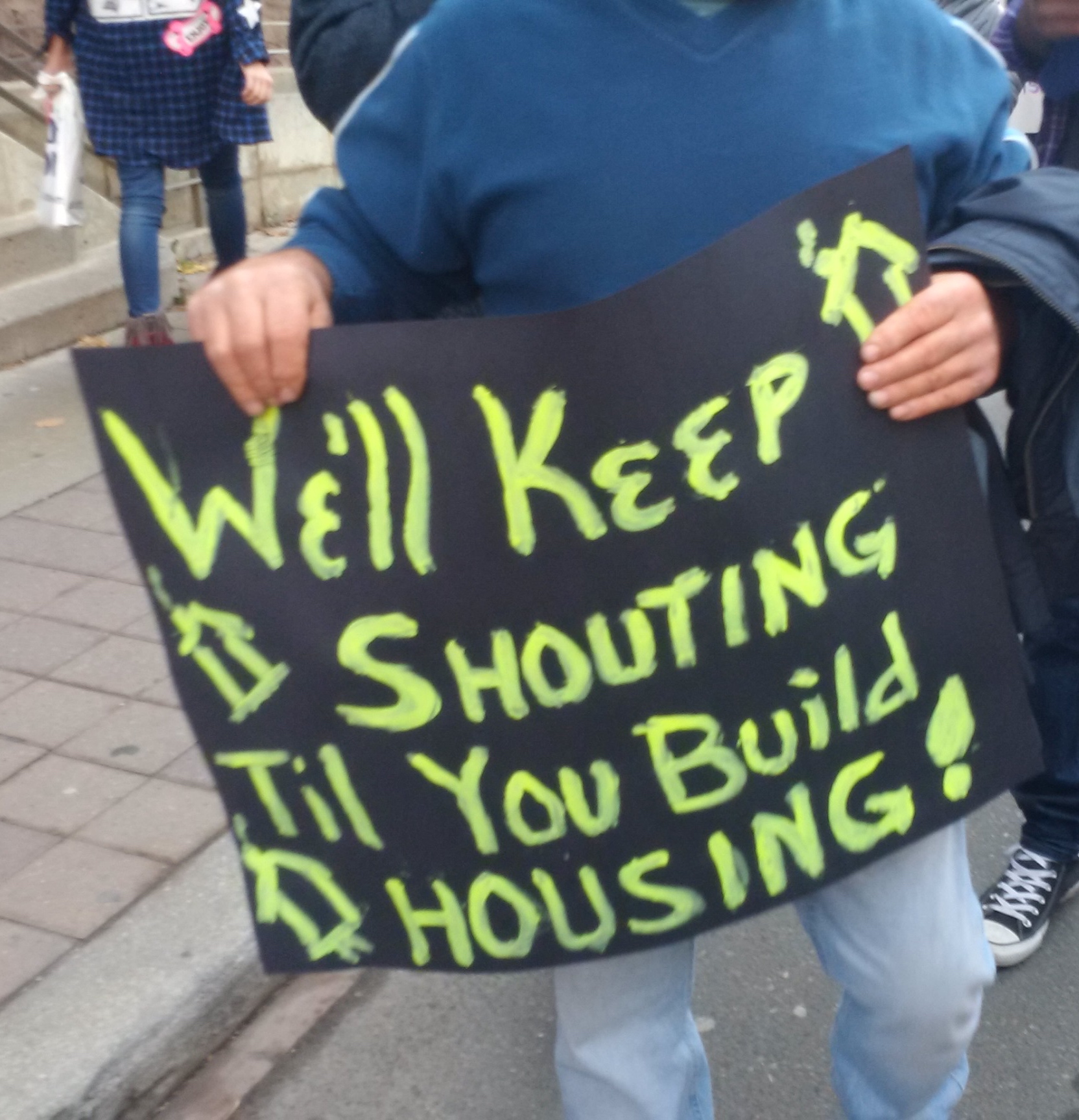On November 22, National Housing Day, the federal government released on Facebook its 60 page, six-month consultation report outlining what Canadians said they want to see in a national housing strategy. The process itself was modern and utilized a hashtag (#LetsTalkHousing) social media, a web portal, stakeholder meetings and roundtables to gather their findings. In total approximately 9,000 people participated in the survey or submitted ideas.
I cannot glean one new piece of information from it.
It regurgitated facts that are well known to the government: “Close to 35,000 Canadians will experience some form of homelessness on any given night.”
It shared important opinions of Canadians: “We need to have more geared-to-income housing available where we live.” — Facebook post
It described desirable outcomes: “Increased supply of new and repaired affordable rental housing (market and non-market/social housing).”
It’s what I expected. When I did the online survey I was shocked at the inane questions about affordability.
Then there are the pitiful comments of Canada Mortgage and Housing Corporation (CMHC), the crown corporation that should be enthusiastically excited to oversee a national housing program. Just prior to the report release they warned housing advocates that meeting their expectations would be too much for the next federal budget to handle. That doesn’t surprise me. It was at a consultation many years ago that CMHC handed me a birdhouse as a gift for taking part and they haven’t done much since.
What has surprised me is the reaction of people in the housing and homelessness sector. Rather than challenging the premise of needing a six-month consultation, amidst the second decade of what is widely considered a homelessness social welfare disaster and affordable housing crisis, organizations enthusiastically jumped on board. Over the summer months it became a huge focus of their national and local work. With great creativity, they worked to include voices of people affected. Voices that reflect a gendered lens, Indigenous voices, voices of people with lived experience.
A few days prior to National Housing Day in Toronto we held a boisterous rally and march. Approximately 400 people turned out for it. Most were front-line workers or people affected by poverty and the housing crisis. Missing in action were key sectors: the union movement, the faith sector, the co-op housing sector, the charitable Out of the Cold sector, the social housing developers, the housing and homelessness researchers, the student movement. Despite the huge efforts of those who put on this rally (and I was one of them) this effort did not produce what Naomi Klein calls the “movement muscle” needed to make politicians nervous and responsive.
Since the release of Let’s Talk Housing there has been a deafening silence. People ask me why? I can only guess.
I’m sure some groups are quietly lobbying key politicians in Ottawa. Some will be saying the glass is half-full and we should be hopeful and thankful for some small allocations of funding for affordable housing in the 2017 budget. Some will be too cautious to speak out because the federal government directly funds them and they fear income loss. Some will be quietly happy as they see the writing on the wall for public-private partnerships. Others are not allowed by their organizations to protest, to march –this is the legacy of the Stephen Harper, Mike Harris, Rob Ford advocacy chill.
On November 22, literally at the same time Let’s Talk Housing was released, a grassroots activist event took place at Toronto’s Homeless Memorial. Take a listen to “Nameless-Homeless” by Don Weitz and “He’s Dead” by Bonnie Briggs. Then advocate — to your MP and any group you are part of to ask them to speak out. The demand: a fully funded national housing program.
Photo credit: Cathy Crowe
Film credit: Eric Weissman
Like this article? Please chip in to keep stories like these coming.



